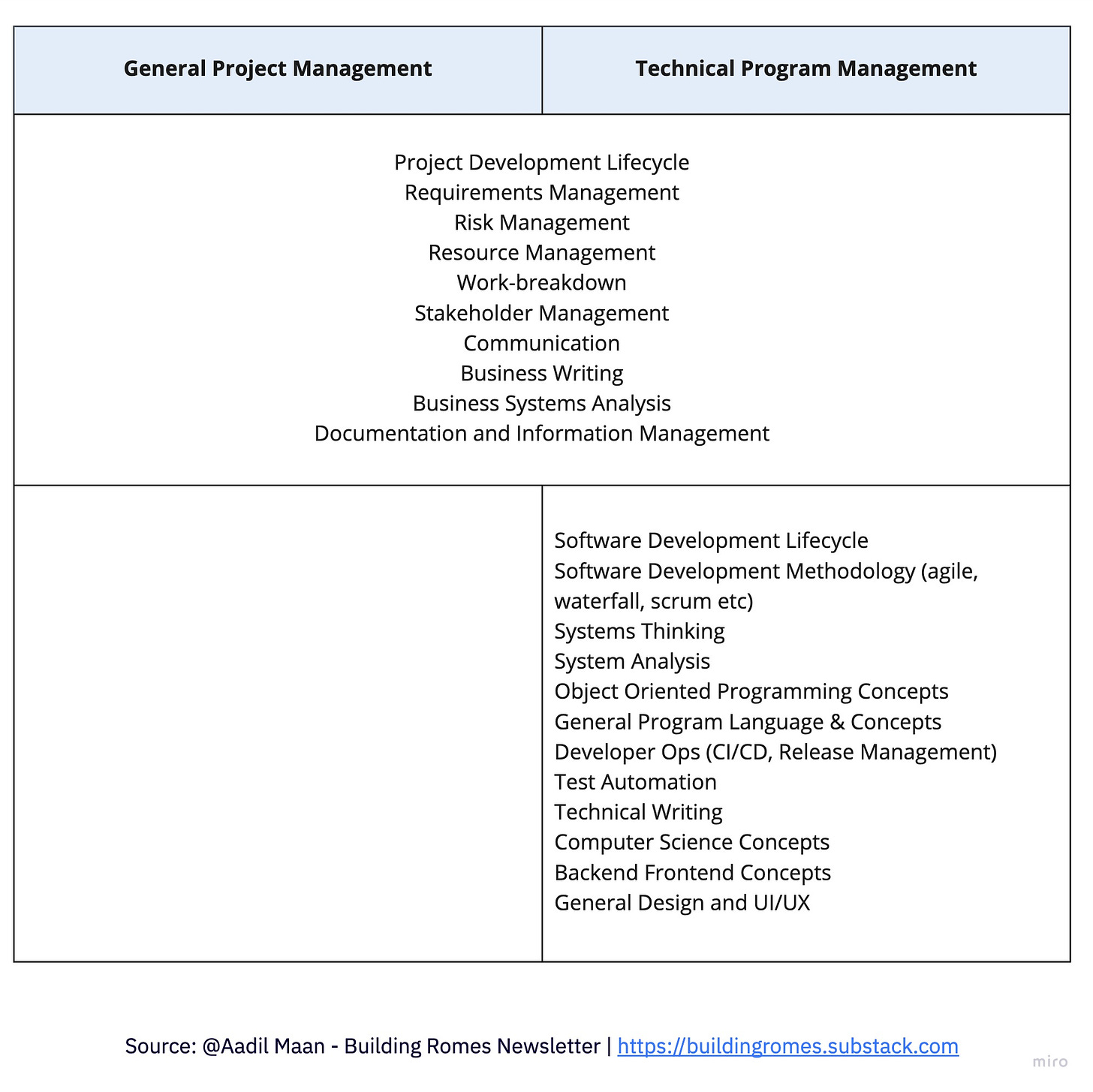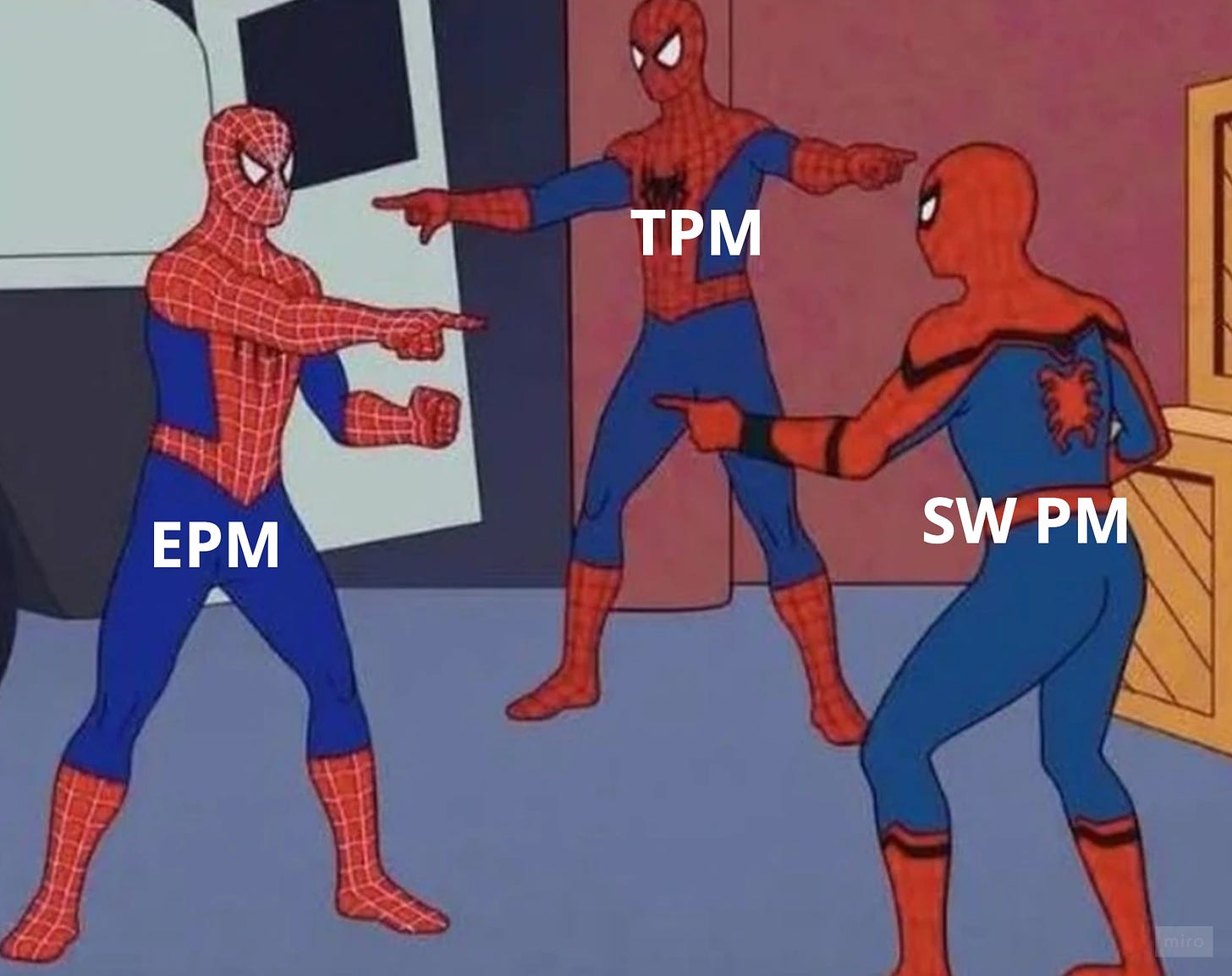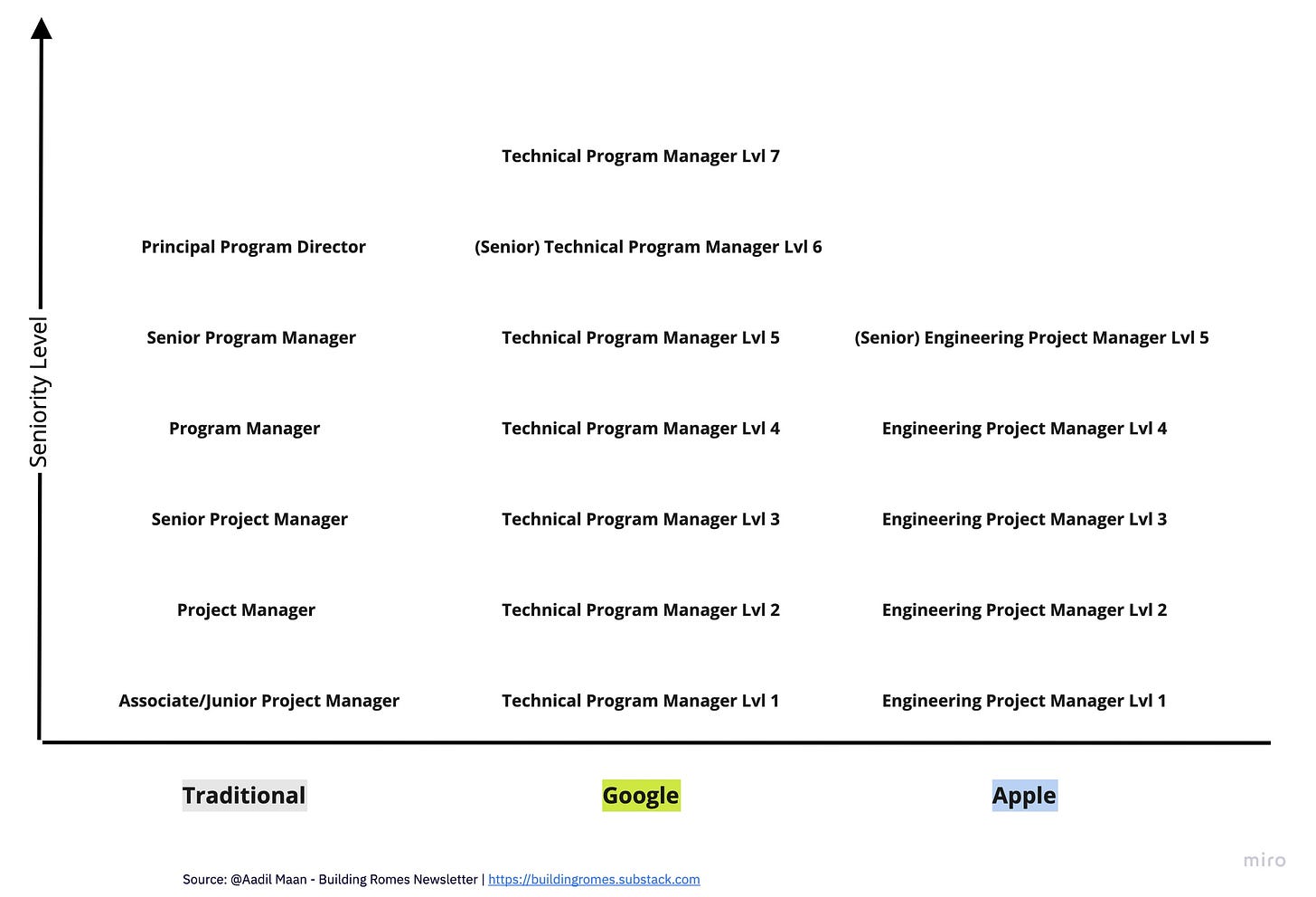“What is the difference between regular project managers and technical program managers?”
“Is an EPM the same as TPM?”
“I love/enjoy project management, but how do I get into technical program management?”
Not Surprisingly, I get these types of questions a lot.
Unlike Product Management, the variation and scope for Project Management in tech industry varies quite a bit.
Blackberry was very different than Apple and Apple was different from Google, then Nike.
Today, I am going to demystify a few of these mysteries and hopefully by the end you walk away with three things:
1️⃣ Better understanding of TPM roles in tech industry.
2️⃣ How those roles scale or level up.
3️⃣ Skills you need to transition or become a TPM.
What do the title’s mean?
A note on basics: there are many similarities and differences between General/Traditional Project Management & Technical Program Management. What is important is you understand that all Project Management roles strive for two things:
🎯 Maximum utilization of resources - human, capital, and time.
⚙️ Ensure teams are always operating at optimal levels.
I have written previously about “What the role of Technical Program Management actually is”.
Where the differences lie is the additional skills needed to be successful as a TPM.
As you progress or transition into the TPM role, it is good to know what the various job titles mean and the key requirements for these roles.
You have probably seen many project management job titles on job boards for tech companies particularly those within Silicon Valley.
Technical Program Management
Engineering Project Management
Software Project Manager
Principal Program Manager
Program Manager
Demystification: They all mean the same thing, you are project managing technical projects. What varies is skill and scope. Various companies have different preferences - EPM at Apple, TPM at Google, Facebook, Amazon, SW Project Manager at Microsoft, Blackberry etc.
Now that you understand this truth, let’s talk about what skills are required to be successful or become a Technical Program Manager.
What skills do you need to be a TPM?
Some project management skills are universal. The importance is the delta for TPMs.
In the table below, I have done my best to highlight the important differences. This delta will change depending on whether you are apple to become a TPM for an App, SaaS service, or Cloud team.

A Note On Ladders and Titles
At Blackberry, we had the traditional project management hierarchy. My title as an intern was Software Project Coordinator; then as a full time employee it was Project Specialist.
At Apple, my title was Engineering Project Manager.
At Google it was Program Manager.
At Nike, I held the role of Principal Program Director as in an individual contributor.
What was different about all these roles was at Apple and Google, my title stayed the same but with promotions my individual contributor levels changed.
Demystified: My title at Nike when translated to Apple or Google would still be EPM and Program Manager, respectively, but the levels may have changed and perhaps a Senior prefix added. On the face value, Nike role sounds more senior yet it is not, its the same.
In my opinion, ladders with levels are far better, fairer, and more productive than titles and here are some reasons why:
Titles create immediate assumptions and opinions of a persons skills without any accuracy especially when dealing with complex and difficult stakeholders.
Levels provide a far better sense of individual scope, responsibilities, and accountability.
This notion of titles versus ladders trips many seeking job opportunities as TPMs. Often times we self censor or ignore job opportunities because the title sounds too senior.
Further Reading: Levels and Titles
So, what do I do with this new found knowledge?
A renewed approach to looking at job postings for Technical Program management roles. Focus on the job description rather than the title. When discussing with recruiter, discuss the actual job scope and ladder level.
If you are considering establishing a Project Management team within your organization, consider IC levels rather than specific titles. Focus on the skills and job responsibilities associated with each level. Give your teams action goals and skills to work towards. Job titles don’t do that - they just at best, boost egos.
Armed with this knowledge, you can correct the current career ladders or org structure in your project management teams.
I hope this essay gives you a better sense of the TPM world in the tech industry.
Until next time. 👋
-Aadil
Feedback on this week’s newsletter:





Love this Aadil. Thanks :)
Aadil, Great Article as always. 👍🏻